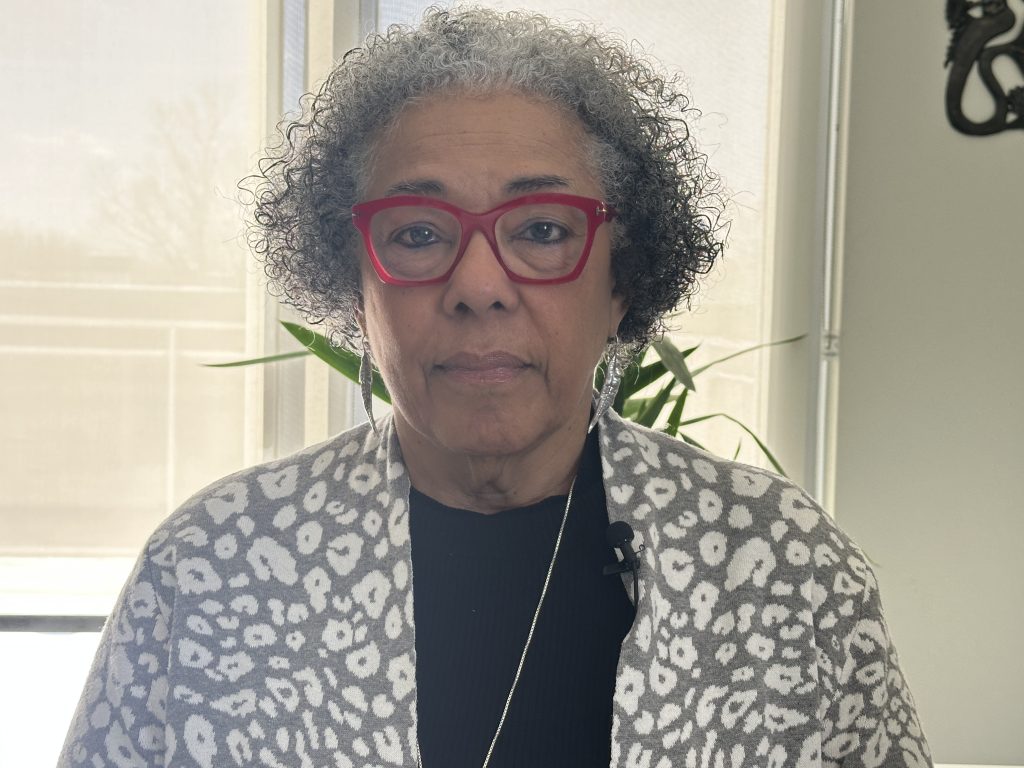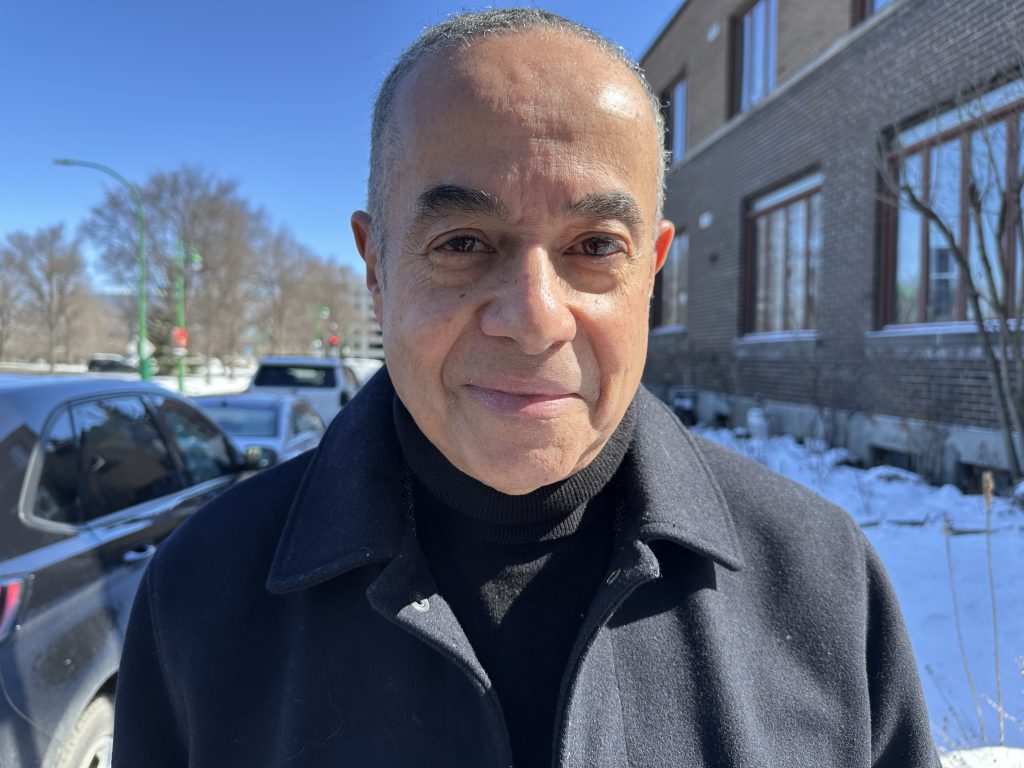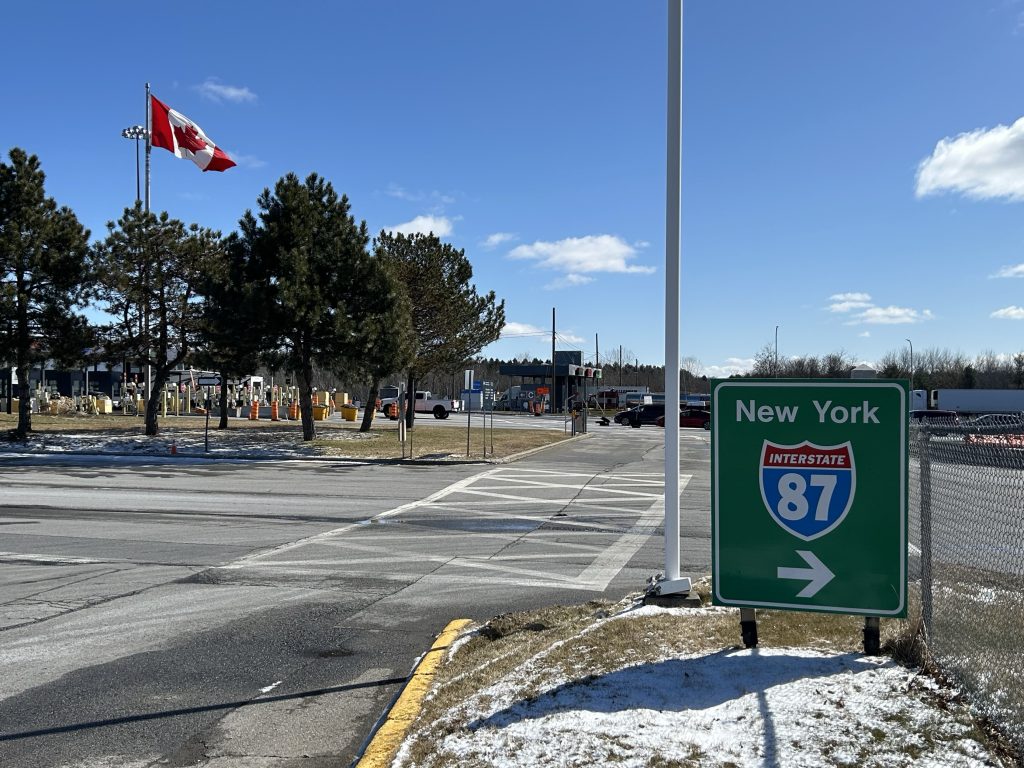Rise in asylum seekers to Canada as migrants’ protected status set to expire in U.S.

Posted April 8, 2025 1:49 pm.
Last Updated April 9, 2025 5:41 pm.
Canadian border officials say there has been a steady rise in the number of people seeking asylum at a border crossing south of Montreal.
The rise in would-be refugees at the St-Bernard-de-Lacolle crossing comes as the temporary status of hundreds of thousands of migrants in the United States is set to expire over the next weeks and months.
Advocates say many of the claimants at the Quebec border crossing are Haitians fleeing the U.S. before their status is removed.
At La Maison d’Haiti in Montreal’s St-Michel, there’s been an increase in Haitians south of the border asking for help.
“They are in the States and they chat on the website with us saying that there is no possibility to live over there. ‘Can we come?'” says executive director of the organization, Marjorie Villefrance. “And the only answer that I can give them is: ‘If you have close family here, you can try to come. But this is the only way.'”

U.S. Homeland Security said last month it was revoking the temporary status of 532,000 people from Cuba, Haiti, Nicaragua and Venezuela who flew to the country at their own expense with a financial sponsor. It ends April 24.
The Trump administration has also announced an end to Temporary Protected Status for 600,000 Venezuelans and about 500,00 Haitians, though a federal judge temporarily put that on hold.
After April 24, Villefranche expects more people to seek her organization’s services.
“If it’s double or triple,” she said. “I don’t know if we’re able to deal with all those people.”

Frantz André, spokesperson for Action Committee for People Without Status (CAPSS), a Montreal-based group that helps undocumented migrants with asylum cases, says there has been a rise in would-be refugees coming to Canada since the election of U.S. President Donald Trump.
“I would say since November, I’ve seen already an increase of people, but definitely February, March, and now it’s the worst I’ve seen for a long time,” he said.
Data from Canada Border Services Agency (CBSA) shows the number of asylum claims at the St-Bernard-de-Lacolle point of entry — 60 kilometres southeast of Montreal — has increased since the start of the year, with 1,356 applications in March and 557 claims for April so far. In January, it saw 560 claims and 755 in February.

The CBSA tells CityNews in a statement that to manage this situation, additional resources have been put in place to ensure a safe and secure border.
And that under the Safe Third Country Agreement, if a person fails to meet an exception, they’ll be returned to the U.S.
“How can we send people that left because of the security? You’re sending them at the worst time,” said André. “So, you’re taking a chance to come to Canada. And with the exception, a lot of people have family members here who have justified and claimed asylum.”
On the federal campaign trail Tuesday, Liberal Leader Mark Carney said it’s not acceptable that people leave the U.S. to claim asylum in Canada and found it appropriate to send them back to the U.S. under the accord.
Conservative Leader Pierre Poilievre said “true” refugees should be allowed to stay, while “fraudsters” will have to go.
“They are talking about asylum seekers as if they wanted to do that,” said Villefranche. “For example, we are facing the tariff problem. We didn’t ask for it. It’s the same thing for the asylum seekers.”
“Let’s not send back people to hell,” said André. “When we have signed the Geneva Convention, we need to give opportunity for people to come and seek asylum.”
André instead proposed allowing asylum seekers to be sent to other provinces, like Manitoba.
Meanwhile, the CBSA says they are putting in place contingency plans in the event of an influx of asylum seekers.
“The CBSA is working closely with many partners, including U.S. Customs and Border Protection (USCBP), the Royal Canadian Mounted Police (RCMP), Immigration, Refugees and Citizenship Canada (IRCC), the intelligence community, emergency medical services and provincial and Indigenous communities. This collaboration is vital for early detection of potential mass migration movements and for continued border security,” the CBSA statement reads.
“We have to face that problem,” said Villefranche. “We cannot just hide ourselves and say, ‘I don’t want to see them.’ They are here and I think they will keep coming.”
-With files from The Canadian Press








